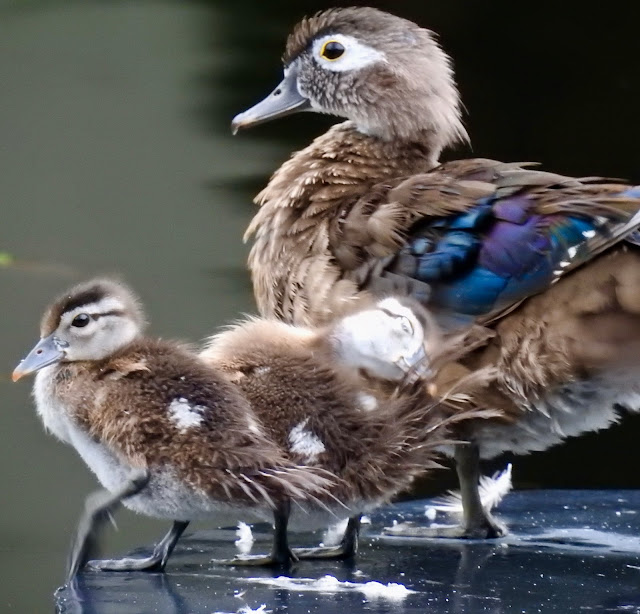So I need to tell you that recently I noticed two deceased birds inside the ring: What's this Bird? said they were two Muscovy Ducks. I don't know what happened, but I thought they were poisoned since they were not visibly injured nor eaten by other wildlife. I did not retrieve and take them to Wildlife, Inc. for tests when I first saw them. They decomposed in the center of the ring.
So, though I'm uncertain about the cause of death, this is another opportunity to share information about poisons and encourage using extra care around the use of pesticides, herbicides, and rat poisons.
Wildewood Springs HOAs disallow rat poisons because of their disruption to wildlife habitat and cycles, the cruel deaths to wildlife, and in the words of a vermin control specialist, "Poisons don't work." Vermin are best controlled by their predators.
Besides Great Egrets, Great Blue Herons eat rats. It's a favorite food. If a rat has eaten rat poison, it dies slowly. If eaten by another animal, that animal dies, too. Fewer Great Blues and Great Egrets and Raptors = more rats.
Eagles like rats, too.
Gail and Ed Straight of Wildlife, Inc. told us about the sick American Eagle they tried to save when it was found on the IMG golf course.
Something the Wildewood Springs community does best - we share information that helps us maintain this rare and precious wetland habitat. Perhaps there are some wildlife we don't like, but we can enlarge our perspective to see that there is room for all of us. Even a need.
PS Great Egrets also eat fish, and strike elegant poses.
* The black ring's purpose is to hold a pipe that draws water to irrigate Pineneedle's landscape.







